Biopsychology is the fascinating science connecting our biological processes to our behaviors and thoughts. Mastering this complex field often requires dedicated support, like tutoring, to bridge challenging concepts with academic success.
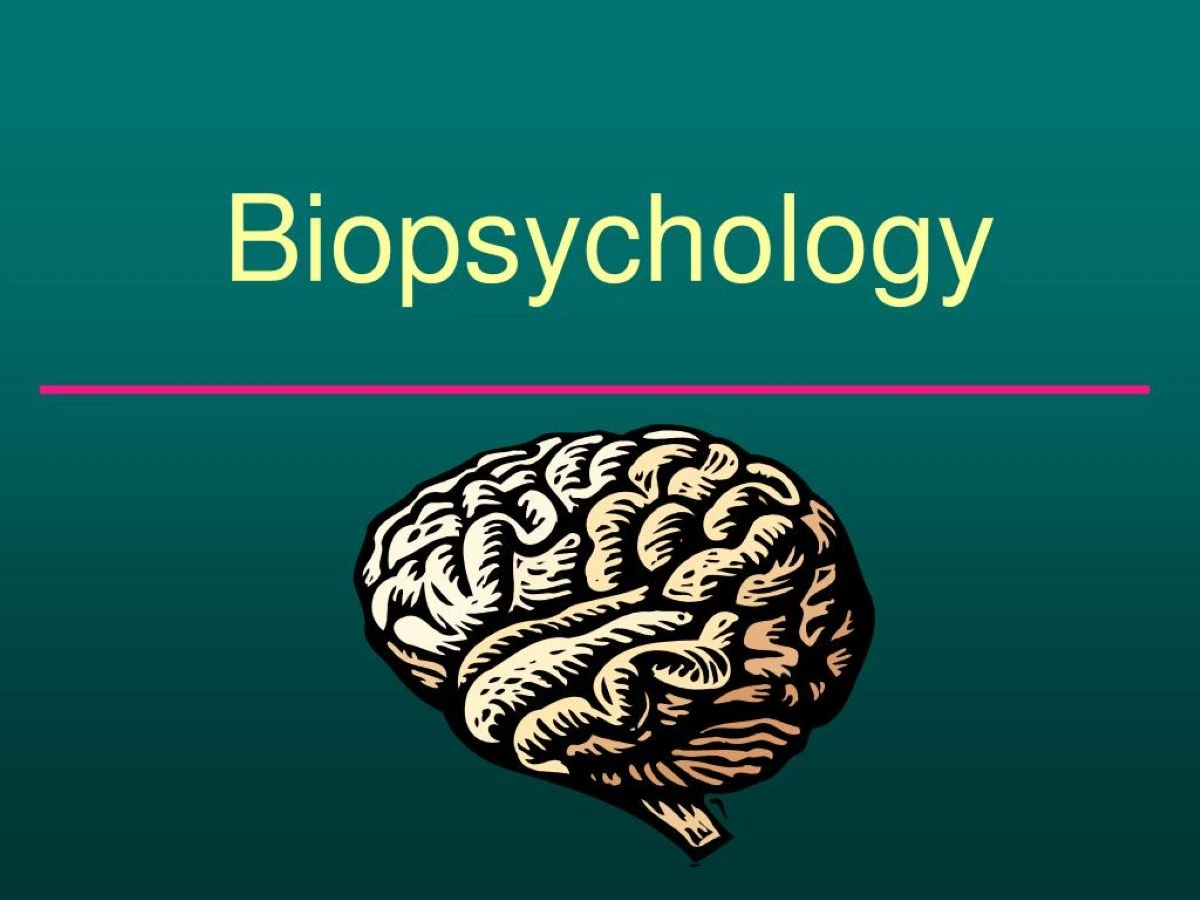
Ever wondered why your heart races before a big presentation? Or why you get that sudden burst of energy when you’re excited? These aren’t just random feelings; they are intricate biological responses orchestrated by the most complex organ known to humanity—the brain. This is the world of biopsychology, a field that seeks to understand the very hardware of our thoughts, emotions, and actions.
Imagine being a detective, but instead of a crime scene, your investigation site is the human nervous system. Your clues are neurotransmitters, your suspects are brain regions, and your goal is to solve the ultimate mystery: why we do what we do. It’s a journey that’s as challenging as it is exhilarating. For students in the USA, UK, and the Gulf, embarking on this academic journey can feel like navigating a dense, uncharted jungle. This article is your compass, designed to guide you through the core concepts of biopsychology and show you how to conquer its challenges.
What Exactly Is Biopsychology?
At its core, biopsychology, also known as behavioral neuroscience, is the scientific study of the biology of behavior. It’s a branch of psychology that operates on a simple but profound principle: all behavior is a product of the nervous system. Think of it like this: if your mind is the software, your brain and nervous system are the hardware. A biopsychologist studies how that hardware runs the software.
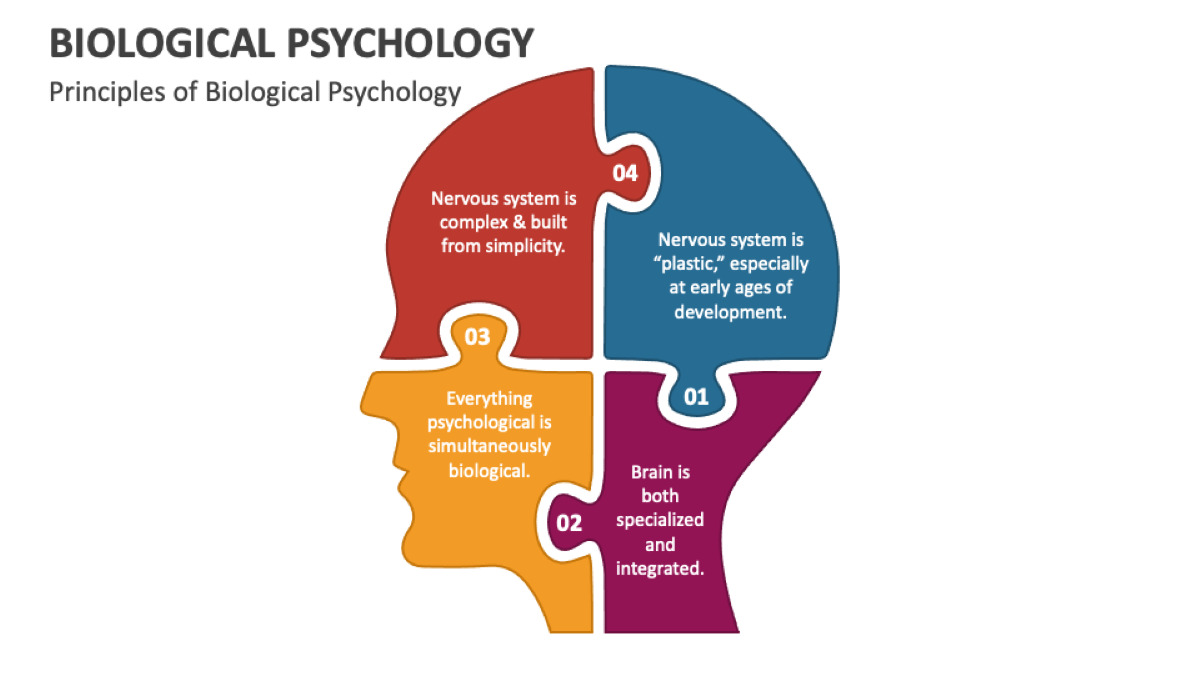
They explore questions like:
- How do brain chemicals (neurotransmitters) influence our mood and lead to conditions like depression or anxiety?
- Which parts of the brain are active when we learn a new skill or form a memory?
- How does brain damage from an accident or stroke change a person’s personality and abilities?
- What are the evolutionary roots of behaviors like aggression or altruism?
This field doesn’t just look at humans. By studying the simpler nervous systems of animals, scientists can gain invaluable insights into the fundamental principles that govern our own brains. It’s a multidisciplinary science, blending biology, psychology, chemistry, and anatomy into one fascinating puzzle.
To better visualize this relationship, think of the connection as a bridge between two distinct worlds.
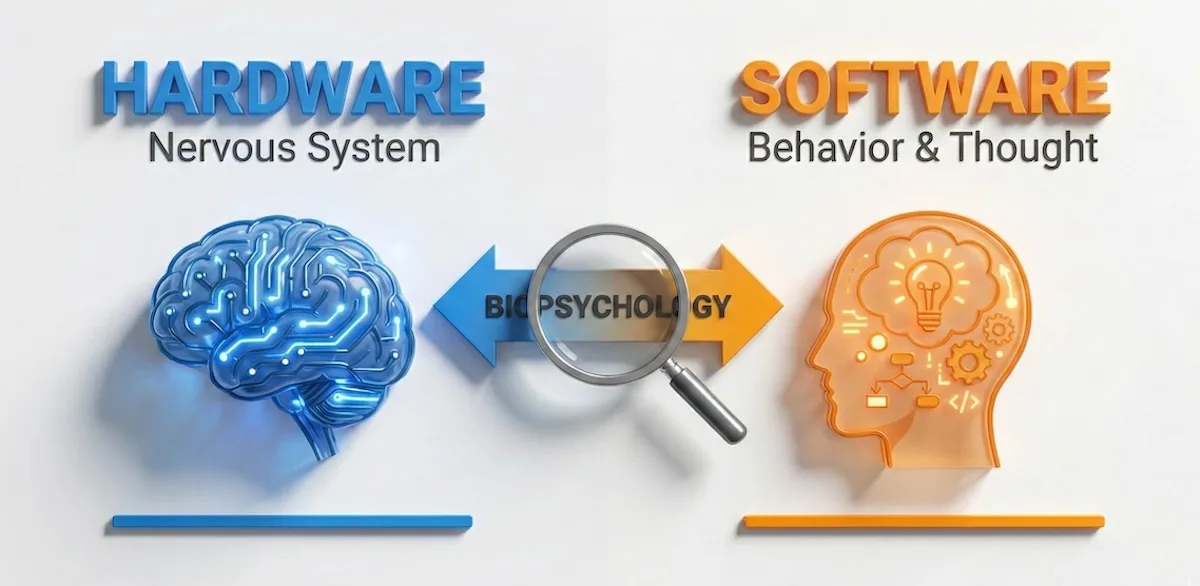
Biopsychology acts as the bridge, studying how our biological hardware drives our behavioral software.
As shown above, Biopsychology is the critical link that translates biological mechanisms into psychological experiences.
Exploring the Diverse Fields Within Biopsychology
Biopsychology is not a single, monolithic subject. It’s an umbrella term for several specialized areas of study, each offering a unique window into the brain-behavior connection. Understanding these divisions can help you appreciate the sheer scope of the field.
With so many overlapping disciplines, it can be helpful to see them mapped out side-by-side. Use this reference guide to distinguish the key focus of each field.
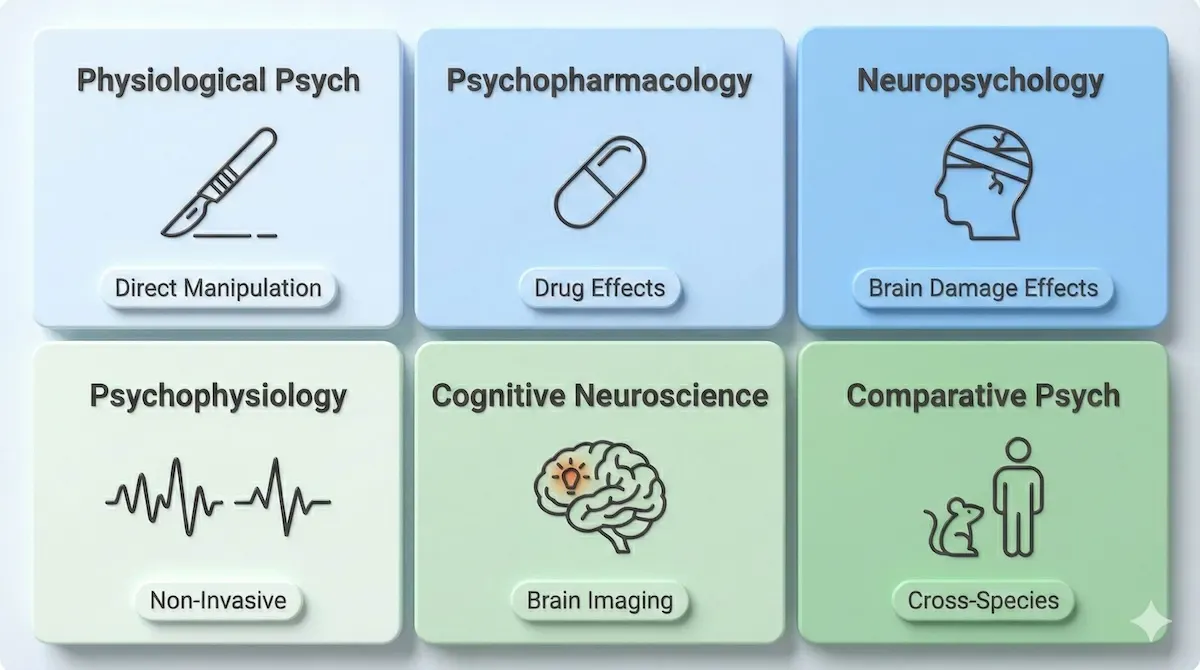
A quick reference guide to the six distinct specialized areas within the world of biopsychology.
Whether it’s invasive surgery or non-invasive imaging, each field contributes a unique piece to the puzzle of the brain.
Physiological Psychology
This subfield focuses on the direct relationship between the brain and behavior. Researchers often use controlled experiments with nonhuman subjects, directly manipulating the brain through surgical or electrical methods to observe the resulting changes in behavior. It’s the most hands-on approach to understanding neural mechanisms.
Psychopharmacology
As the name suggests, this area is all about how drugs affect the brain and behavior. Psychopharmacologists study everything from how medications for mental illness work to the ways that recreational drugs alter consciousness. Their work is crucial for developing new therapies and understanding addiction.
Neuropsychology
Neuropsychologists study the psychological effects of brain damage in human patients. Since they can’t ethically create brain damage for experiments, they work with individuals who have sustained brain injuries through illness or accidents. Their assessments help diagnose the extent of the damage and form the basis for rehabilitation programs.
Psychophysiology
This division studies the relationship between physiological activity and psychological processes in human subjects. Because the focus is on humans, the procedures are non-invasive. A psychophysiologist might use an EEG (electroencephalogram) to measure brain activity while a person solves a puzzle or an EKG to monitor heart rate during an emotional experience.
Cognitive Neuroscience
This is one of the newest and most exciting divisions. Cognitive neuroscientists study the neural bases of cognition—higher-level mental processes like thinking, memory, and attention. Their primary tool is functional brain imaging, which allows them to observe the brain in action as people perform cognitive tasks.
Comparative Psychology
This area compares the behavior of different species to understand the evolution, genetics, and adaptiveness of behavior. While some comparative psychologists study animal behavior in its natural environment, others conduct lab research to explore the biological underpinnings of processes like learning and motivation.
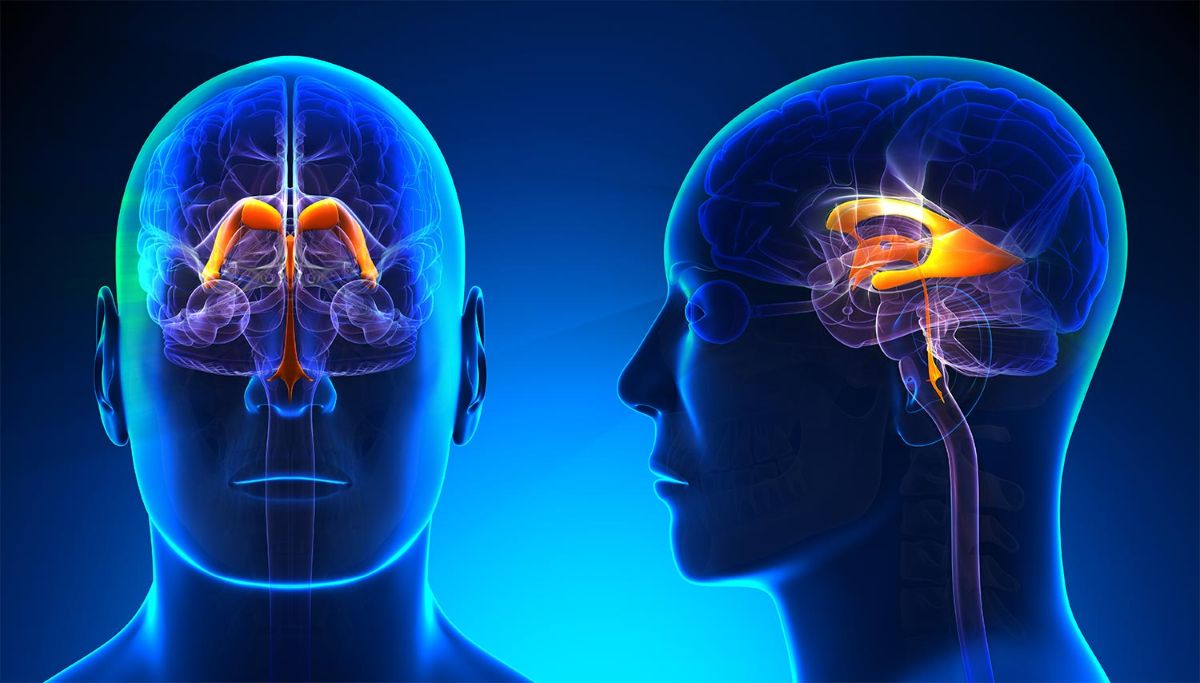
The Challenges and Triumphs of Studying Biopsychology
Let’s be honest: biopsychology is tough. Really tough. You are essentially learning a new language—the language of the nervous system. You’ll grapple with complex anatomical terms, intricate chemical pathways, and abstract theories that connect the two. The human brain contains an estimated 86 billion neurons, each with thousands of connections. Comprehending the scale of that complexity is a challenge in itself.
Consider the story of Sarah, a second-year university student. She was fascinated by psychology but found herself struggling in her biopsychology course. She could memorize the names of brain parts, like the amygdala or the hippocampus, but she couldn’t grasp how they worked together to create an emotion like fear. The textbook diagrams felt flat, and the lectures were packed with information. She felt overwhelmed, and her grades started to slip.
For example, instead of just memorizing names, associate each region with a functional icon. Here is how you can visualize the difference between the Amygdala and Hippocampus.
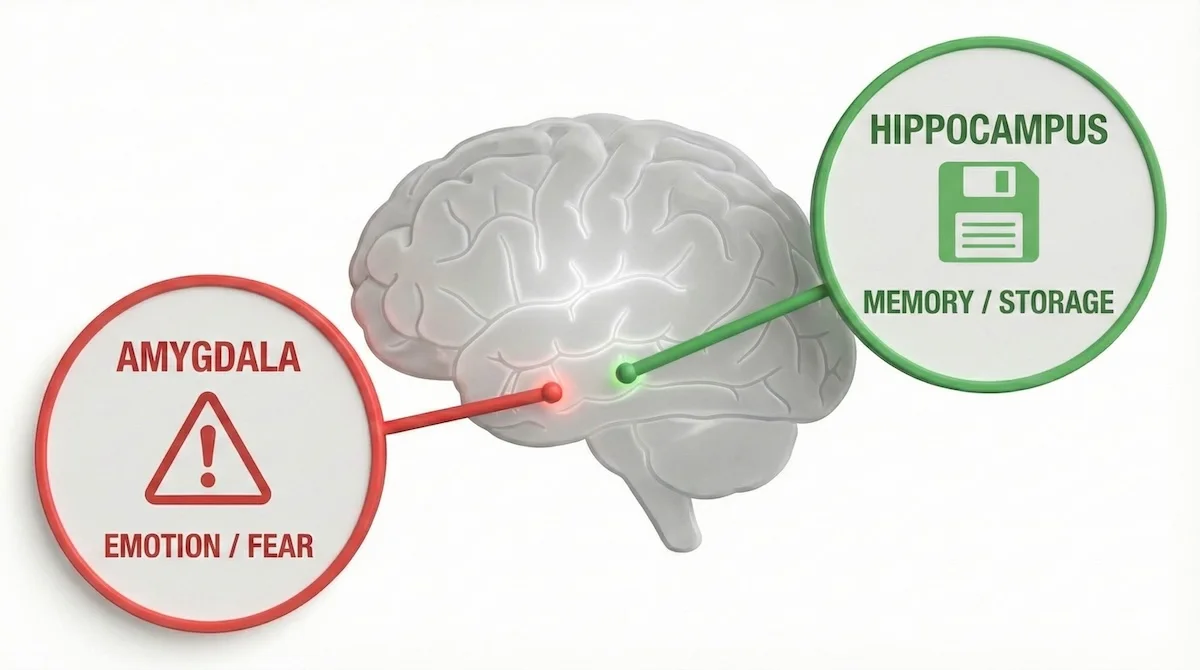
Connecting anatomical names to functional icons—like a warning sign for the Amygdala and a save button for the Hippocampus—makes memorization easier.
By associating the Amygdala with ‘alarms’ and the Hippocampus with ‘storage,’ the biological terms become much easier to recall during exams.
Sarah’s experience is incredibly common. The jump from theoretical psychology to the hard science of the brain can be jarring. This is where the right kind of support becomes not just helpful, but essential. It’s one thing to read about the action potential of a neuron; it’s another to have someone explain it with an analogy that suddenly makes everything click. The triumph of understanding these concepts is immense, as it unlocks a deeper appreciation for the human experience.
Let’s strip away the complexity and look at the fundamental way neurons talk to each other. Here is the process simplified into a mechanical flow.
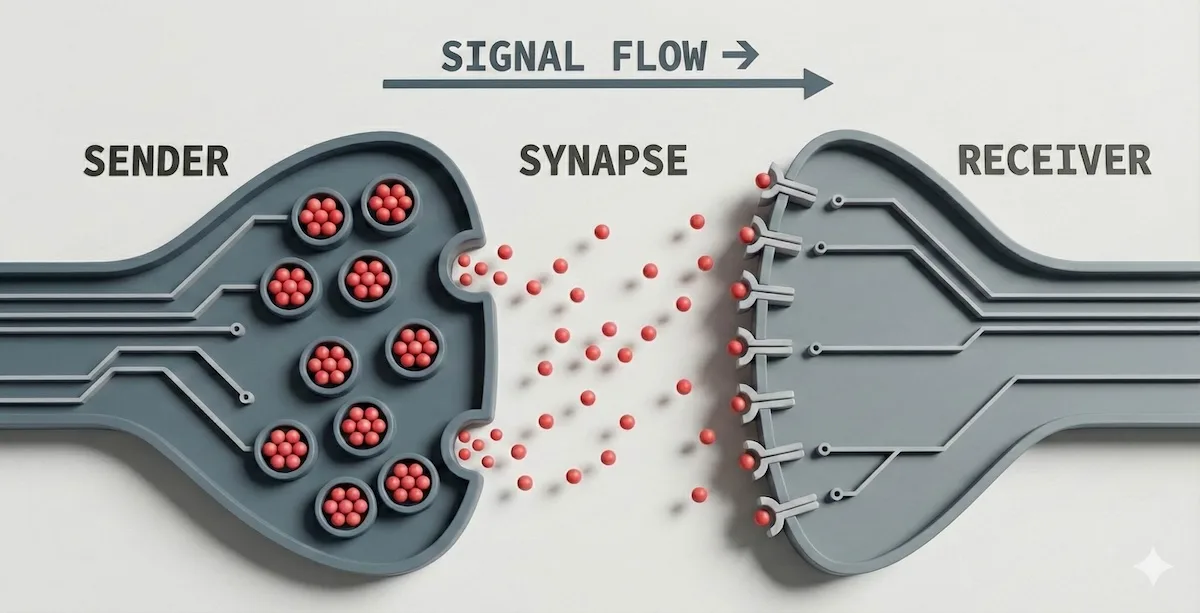
Visualizing the “chemical handshake” between neurons helps demystify how complex neural pathways communicate.
Understanding this basic ‘sender-receiver’ model is the first step to mastering the more complex chemical pathways you will encounter.
Strategies for Success in Your Biopsychology Studies
Navigating the complexities of biopsychology requires more than just late-night study sessions. It requires smart strategies and the right support system. If you’re feeling like Sarah, lost in a sea of neural networks, don’t worry. There are life rafts available.
The Power of Expert Guidance
Sometimes, a textbook or a lecture isn’t enough. The true value of expert guidance comes from interactive, personalized learning. An experienced Biopsychology teacher can break down daunting topics into manageable chunks. They can offer different perspectives and use real-world examples to illustrate how, for instance, a dopamine imbalance can affect motivation.
This kind of specialized Biopsychology teaching moves beyond memorization and fosters true understanding. It helps you build a strong conceptual foundation, which is critical for success in higher-level courses and for applying your knowledge in the future.
Finding the Right Support System
In today’s digital world, that expert guidance is more accessible than ever. The rise of Biopsychology tutoring online has been a game-changer for students everywhere. Whether you’re in a bustling city in the US or a quiet town in the UK, you can connect with a qualified Biopsychology tutor who fits your schedule and learning style.
An effective Biopsychology tutor online acts as a personal academic coach. They can help you prepare for exams, clarify doubts from class, and offer encouragement when you feel stuck. A study from the National Survey of Student Engagement (NSSE) consistently finds that students who have substantive interactions with their instructors report greater learning and satisfaction. Tutoring provides exactly that—a focused, substantive interaction designed to boost your confidence and comprehension.
Tackling Those Tough Assignments
Beyond exams, there are the assignments: lab reports, research essays, and case study analyses. These tasks require you to apply theoretical knowledge to practical problems, a skill that can be difficult to develop on your own. It’s no wonder that many students find themselves searching for Biopsychology homework help.
When you’re staring at a complicated prompt, getting quality Biopsychology assignment help can make all the difference. This isn’t about finding shortcuts; it’s about learning the process. A great tutor won’t just give you the answers. Instead, they’ll guide you, helping you structure your arguments, find credible sources, and understand the underlying principles. Seeking Biopsychology hw help is a proactive step toward mastering the material, not avoiding it.
How to Find the Perfect Biopsychology Support
So, you’ve decided you want that extra support. How do you find the right person? When you decide to hire a Biopsychology tutor, you’re investing in your education. It’s important to choose wisely.
Look for a few key qualities:
- Subject Matter Expertise: This is non-negotiable. The tutor should have a strong academic background in biopsychology or a related neuroscience field.
- Teaching Experience: Knowing a subject and teaching it are two different skills. Look for someone with experience in making complex topics understandable.
- Patience and Communication: The best tutors are patient, encouraging, and excellent communicators. They create a comfortable space for you to ask questions without feeling judged.
- Flexibility: The advantage of looking for a Biopsychology tutor online is the flexibility to find someone who can work with your schedule, no matter your time zone.
Professional Biopsychology tutoring services often vet their experts, ensuring they meet these criteria. This can save you time and give you peace of mind that you’re connecting with a high-quality educator.
Your Journey into the Brain Begins Now
Biopsychology is more than just a college course; it’s a profound exploration of what it means to be human. It reveals the biological symphony behind every thought we have, every emotion we feel, and every action we take. While the path to understanding it can be steep, it is an incredibly rewarding journey.
Remember that you don’t have to walk it alone. Whether you need help untangling a single concept or ongoing support throughout your course, resources are available. From comprehensive Biopsychology tutoring to targeted assignment help, the right guidance can transform your learning experience from one of struggle to one of discovery. Embrace the challenge, ask for help when you need it, and prepare to be amazed by the intricate world within your own head.
Frequently Asked Questions about Biopsychology
Q1. Is biopsychology the same as neuroscience?
Neuroscience is a broader field, while biopsychology specifically focuses on the biology of behavior.
Q2. What is the hardest part of learning biopsychology?
Most students find the vast amount of new terminology and the complexity of neural and chemical pathways to be the most challenging aspects.
Q3. Can I get a job with just a bachelor’s degree in biopsychology?
Yes, you can work as a research assistant, lab technician, or in health services, though many advanced careers require a graduate degree.
Q4. Why is animal research used in biopsychology?
Animal research allows for more invasive studies that would be unethical in humans, providing fundamental insights into brain function.
Q5. What is a key real-world application of biopsychology?
The development of pharmaceutical treatments for mental health disorders like depression and schizophrenia is a direct application of biopsychology.
Q6. How can a biopsychology tutor help me most effectively?
A tutor is most effective at providing personalized explanations for complex topics that you are struggling to understand from lectures or textbooks.
Related Subjects
Cognitive Neuroscience
Computational Neuroscience
Electrophysiology
Neuroimaging
******************************
This article provides general educational guidance only. It is NOT official exam policy, professional academic advice, or guaranteed results. Always verify information with your school, official exam boards (College Board, Cambridge, IB), or qualified professionals before making decisions. Read Full Policies & Disclaimer , Contact Us To Report An Error
